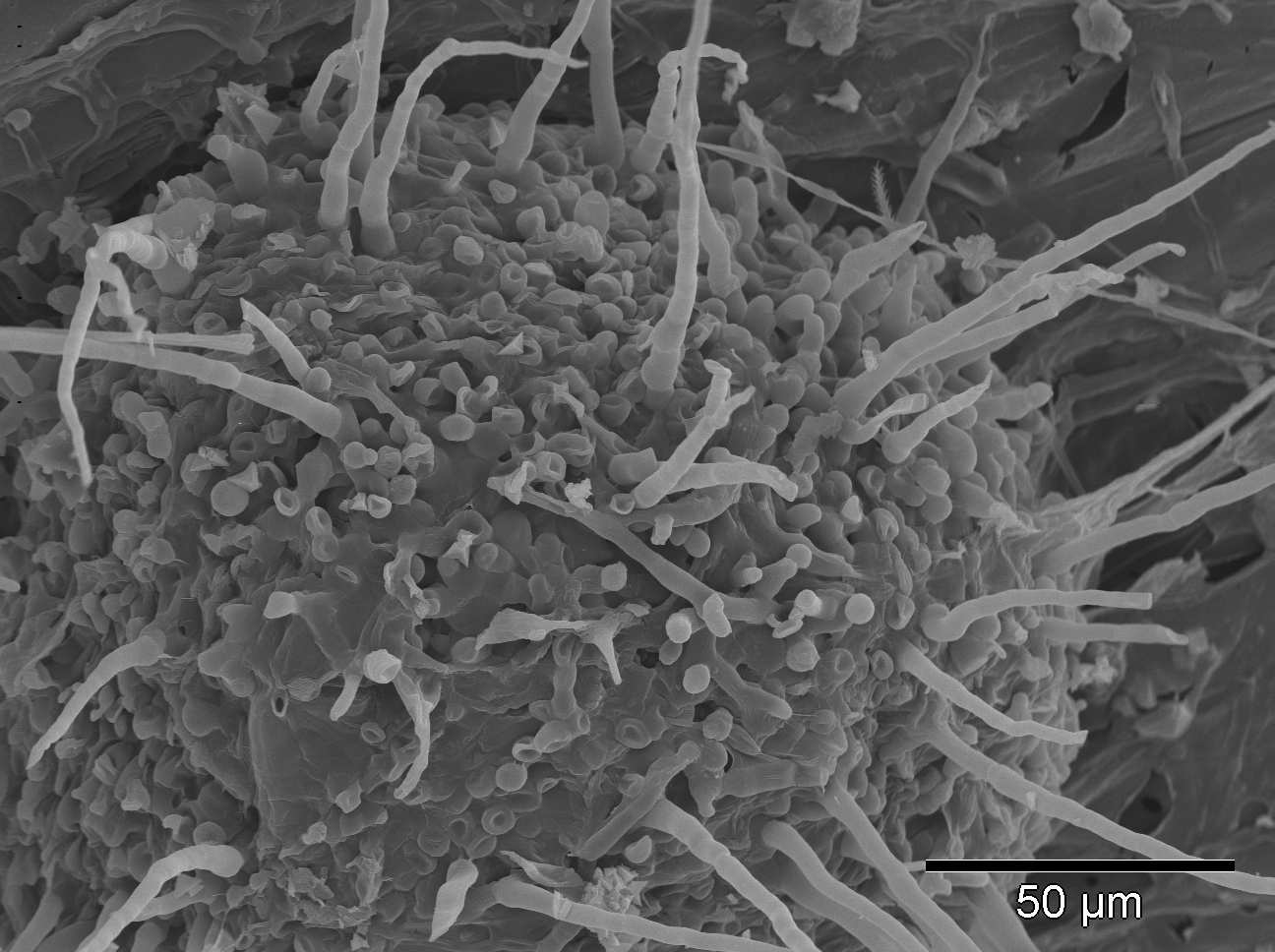Karina Hauer (Graz): Colletotrichum coccodes causes as primarily soil borne pathogen black dot disease at potatoes (Solanum tuberosum) and anthracnose symptoms on tomato (S. lycopersicum) crops. Apart from black dot and tomato anthracnose C. coccodes is also able to infect many different host species from more than 13 families, mainly Solanaceae, Cucurbitaceae and Fabaceae. The harmful fungus influences plant health in many ways such as leaf and stem health, tuber devel-opment, crop yield and shelf life of harvested fruits and tubers.
The plant pathogen´s armoury ranges from morphological (e.g. appressoria) and propagation adaptations (e.g. conidia spores) to biochemical alignments (e.g. cell wall degrading enzymes) to facilitate effective infection and colonisation of host plants. The fungus´ morphological and physiological infrastructure and its dependence on abiotic factors are investigated by micro-scopic (light microscopy, transmission and scanning electronic microscopy) and several bio-molecular methods to achieve a better understanding of the fungus´ complex infection process-es.
